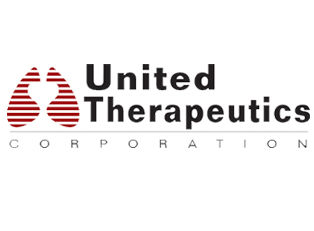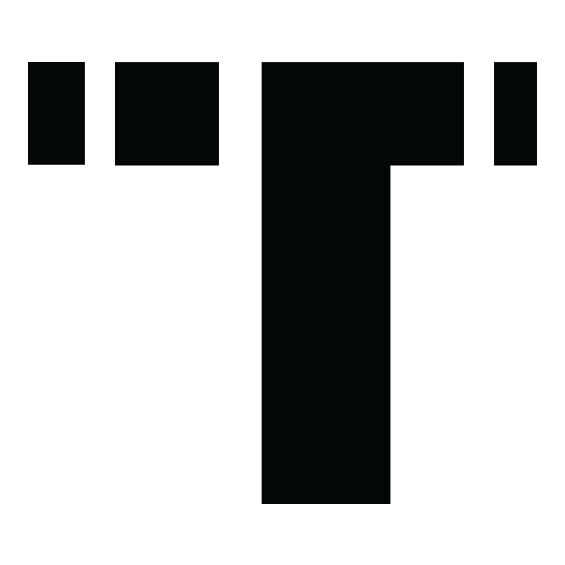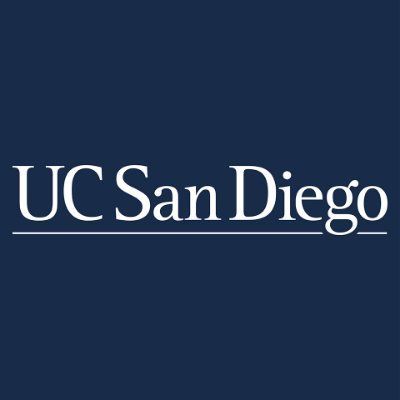预约演示
更新于:2025-10-07

United Therapeutics Corp.
更新于:2025-10-07
概览
标签
呼吸系统疾病
其他疾病
心血管疾病
小分子化药
单克隆抗体
恒定NKT疗法
疾病领域得分
一眼洞穿机构专注的疾病领域
暂无数据
技术平台
公司药物应用最多的技术
暂无数据
靶点
公司最常开发的靶点
暂无数据
| 排名前五的药物类型 | 数量 |
|---|---|
| 小分子化药 | 2 |
| 恒定NKT疗法 | 1 |
| 细胞疗法 | 1 |
| 腺相关病毒基因治疗 | 1 |
| 单克隆抗体 | 1 |
关联
6
项与 United Therapeutics Corp. 相关的药物靶点 |
作用机制 GD2抑制剂 [+2] |
非在研适应症 |
最高研发阶段批准上市 |
首次获批国家/地区 美国 |
首次获批日期2015-03-10 |
作用机制 PGI2 receptor激动剂 |
最高研发阶段批准上市 |
首次获批国家/地区 美国 |
首次获批日期2002-05-21 |
作用机制 PGI2 receptor激动剂 |
非在研适应症 |
最高研发阶段申请上市 |
首次获批国家/地区- |
首次获批日期- |
140
项与 United Therapeutics Corp. 相关的临床试验NCT07116681
The Acute Effects of Dry Powder Inhaled Treprostinil on Stroke Volume Augmentation and Dead Space Ventilation in Patients With Exercise-induced Pulmonary Hypertension
This study aims to investigate therapies for exercise induced pulmonary hypertension (EiPH). This is a condition that effects the blood vessels in the lungs and causes shortness of breath with activity. Currently, there are very limited treatment options for this condition. Inhaled treprostinil, also known as Tyvaso, is a medication used to treat other forms of lung disease and is safe and well tolerated. This study will measure the ability of Tyvaso to improve symptoms related to EiPH and improve performance on exercise testing.
开始日期2025-10-01 |
申办/合作机构 |
NCT06878560
EXPAND: A Prospective Study to Evaluate the Safety and Efficacy of the 10 GE Xenokidney in Patients With End-stage Renal Disease (ESRD)
The purpose of this study is to evaluate the safety and efficacy of the 10 GE Xenokidney in patients with ESRD who are either not eligible for conventional allogeneic kidney transplantation (Group 1) or are on an Organ Procurement and Transplantation Network (OPTN) kidney transplant waitlist, but are more likely to die or go untransplanted within 5 years than receive a kidney transplant (Group 2).
The study consists of xenotransplantation followed by a 24-week Post-transplant Follow up Period (Part A) to evaluate the efficacy and safety objectives followed by a Long-term Follow-up Period (Part B) to evaluate participant survival, 10 GE Xenokidney survival, and screening for zoonotic infections. Part B will continue for the lifetime of the participant.
The study consists of xenotransplantation followed by a 24-week Post-transplant Follow up Period (Part A) to evaluate the efficacy and safety objectives followed by a Long-term Follow-up Period (Part B) to evaluate participant survival, 10 GE Xenokidney survival, and screening for zoonotic infections. Part B will continue for the lifetime of the participant.
开始日期2025-08-01 |
申办/合作机构 |
NCT06911632
MOMENTOUS Study (iMpact Of an Ecg ai ModEl oN The Diagnosis Of pUlmonary hypertenSion)
MOMENTOUS is a multi-center, randomized study to prospectively evaluate the performance of an ECG-based AI device to predict whether participants with interstitial lung disease (ILD) are at high risk of undiagnosed pulmonary hypertension.
开始日期2025-07-23 |
申办/合作机构  Tempus AI, Inc. Tempus AI, Inc. [+1] |
100 项与 United Therapeutics Corp. 相关的临床结果
登录后查看更多信息
0 项与 United Therapeutics Corp. 相关的专利(医药)
登录后查看更多信息
175
项与 United Therapeutics Corp. 相关的文献(医药)2025-11-01·RESPIRATORY MEDICINE
BREEZE Optional Extension Phase: Long-term safety and efficacy of treprostinil dry powder inhaler (Tyvaso DPI) in pulmonary arterial hypertension
Article
作者: Desai, Sapna ; Mehta, Jinesh P ; Shah, Trushil G ; Thrasher, Claire M ; Bajwa, Abubakr A ; Sahay, Sandeep ; Fisher, Micah R ; Eggert, Michael S ; Restrepo-Jaramillo, Ricardo ; Broderick, Meredith ; Palevsky, Harold ; Ramani, Gautam V ; Spikes, Leslie A ; Smith, Peter ; Johri, Shilpa ; El-Kersh, Karim ; Deng, Chunqin ; Joly, Joanna M ; Shapiro, Shelley M ; Burger, Charles D
INTRODUCTION:
Pulmonary arterial hypertension (PAH) is a rare and progressive disease associated with significant morbidity and mortality. Prostacyclins, including treprostinil, are a mainstay of PAH treatment, particularly in patients with intermediate to high risk of death. Following the approval of treprostinil inhalation solution for PAH, treprostinil dry powder inhaler (DPI) was developed as a small, portable, low-maintenance device to improve patient experience.
OBJECTIVE:
The primary objective of the BREEZE study was to assess the safety and tolerability of treprostinil DPI in PAH.
METHODS:
BREEZE was a 3-week, single-arm, open-label study in which patients with PAH transitioned from a stable dose of treprostinil inhalation solution to a comparable dose of treprostinil DPI.
RESULTS:
Following the 3-week treatment phase, 49 of 51 patients opted to enroll in the Optional Extension Phase (OEP). Throughout the OEP, 6MWD continued to increase with a median change from baseline of 16 m at week 107 and over a third of patients experiencing an improvement of at least 30 m. Patient satisfaction with the DPI device was overwhelmingly positive while drug-related adverse events were infrequent and characteristic of prostacyclin therapy.
CONCLUSION:
The BREEZE OEP successfully demonstrated the safety of long-term treatment with treprostinil DPI in patients with PAH.
CLINICAL TRIAL REGISTRATION:
NCT03950739.
2025-09-01·Pulmonary Therapy
Study Design and Rationale for the PHINDER Study: Pulmonary Hypertension Screening in Patients with Interstitial Lung Disease for Earlier Detection
Article
作者: DerSarkissian, Maral ; Broderick, Meredith ; Kulkarni, Tejaswini ; Shen, Eric ; Zisman, David A ; Kiely, David G ; Shlobin, Oksana A ; Scholand, Mary Beth ; Maher, Kevin M
INTRODUCTION:
A common complication of interstitial lung disease (ILD) is pulmonary hypertension (PH), which is associated with increased morbidity and mortality and worsened quality of life. In ILD, evaluating for PH is recommended prior to lung transplantation. However, this is not standardized or routinely performed in earlier stages of ILD, and guidelines lack an evidence-based approach for PH screening in this population. Furthermore, right-heart catheterization (RHC) access can be limited in many settings. The objective of PHINDER (Pulmonary Hypertension Screening in Patients with Interstitial Lung Disease for Earlier Detection) is to prospectively develop screening strategies for PH in patients with ILD.
METHODS:
PHINDER is a prospective, non-interventional study that will enroll approximately 200 patients with ILD treated in a variety of settings in the United States (community centers, academic institutions, etc.). Patients must be diagnosed with ILD by high-resolution computed tomography (HRCT) and must not have a previously reported mean pulmonary arterial pressure (mPAP) > 20 mmHg. To enrich the population for PH, patients must meet additional criteria on Pulmonary Function Tests, HRCT, signs/symptoms, 6-min walk test, or echocardiography. Patients will undergo a variety of routine ILD clinical assessments. Lastly, patients receive a RHC to assess for PH, defined as mPAP > 20 mmHg with pulmonary arterial wedge pressure ≤ 15 mmHg and a pulmonary vascular resistance > 2 Wood Units. All treatment decisions are at the discretion of the provider and not influenced by study participation.
PLANNED OUTCOMES:
Following study completion, statistical tools will be used to derive a practical model for a screening algorithm using the variables identified in the study as most predictive of PH in patients with ILD.
CONCLUSIONS:
Using a previously developed list of clinical assessments from PH and ILD experts, the PHINDER study aims to be the first prospectively enrolled study to evaluate prognostic screening strategies that can be used to develop an algorithm to predict the risk of PH in patients with ILD.
TRAIL REGISTRATION:
NCT05776225.
2025-08-01·JHLT Open
Safety and pharmacokinetics of ralinepag, a novel oral prostacyclin receptor agonist
Article
作者: Patzlaff, Natalie ; Sood, Namita ; Ataya, Ali ; Broderick, Meredith ; Coons, James C ; Patricia George, M ; Seaman, Scott ; Chakinala, Murali M
Background:
Ralinepag is an oral, potent, highly selective prostacyclin receptor agonist and is in development for pulmonary arterial hypertension. Ralinepag was formulated as an immediate-release (IR) capsule, later modified to an extended-release (XR) tablet to optimize administration for once-daily dosing.
Methods:
This phase I study evaluated the pharmacokinetic (PK) profile and relative bioavailability of ralinepag XR. There were two cohorts of healthy participants (n = 12 each). One received a single dose of ralinepag IR (30 µg) followed by single ascending doses of XR (60, 120, and 180 µg), and the other received single ascending doses of selexipag (200, 400, and 600 µg). Participants titrated to the highest tolerated dose. There was a 7-day washout period between each dose.
Results:
The ralinepag XR formulation showed a reduced maximum observed concentration (Cmax), delayed time of maximum observed concentration (Tmax), and similar area under the curve compared with the IR formulation. Ralinepag XR demonstrated a gradual increase in plasma concentration over 8 to 12 hours, followed by a slow decline, with a half-life of 19-23 hours. In contrast, the active metabolite of selexipag (MRE-269) exhibited a sharp peak with a half-life of 9-10 hours. Ralinepag XR was well-tolerated by healthy volunteers, with 9 of 12 participants reaching the highest dose. Adverse events were qualitatively similar to oral prostacyclin class therapies.
Conclusion:
Ralinepag XR has a half-life suitable for once-daily dosing. The reduced Cmax and delayed Tmax contributes to lower peak-to-trough fluctuations and may provide favorable effects for sustained efficacy and improved tolerability.
351
项与 United Therapeutics Corp. 相关的新闻(医药)2025-09-12
Results of the successful phase 3 TETON-2 study of inhaled treprostinil in idiopathic pulmonary fibrosis will be presented in an oral presentation
SILVER SPRING, Md. & RESEARCH TRIANGLE PARK, N.C.--(BUSINESS WIRE)-- United Therapeutics Corporation (Nasdaq: UTHR), a public benefit corporation, today announced that recent research across its commercial and development portfolio will be presented at the European Respiratory Society (ERS) Congress in Amsterdam, Netherlands on September 27 - October 1, 2025.
“On the heels of the remarkable topline results announced earlier this month, we are excited to present additional analyses from the TETON-2 study at ERS this year,” said Andrew Nelsen, PharmD,Vice President, Global Medical Affairs at United Therapeutics. “Furthermore, we are pleased to present additional interim data from the ADVANCE EXTENSION open-label study evaluating ralinepag for pulmonary arterial hypertension, as well as interim discoveries from the PHINDER study that we believe will improve detection of pulmonary hypertension in patients with interstitial lung disease.”
Posters, mini-symposia, and discussion sessions include:
Oral presentation. Sunday, Sep 28, 11:00 a.m. to 12:15 p.m. CET: Elicium 1/OA1254 – TETON Phase 3 Clinical Trials of Inhaled Treprostinil in the Treatment of Idiopathic Pulmonary Fibrosis. Presented by Steven D. Nathan, M.D., FCCP, Inova Fairfax Hospital.
Oral presentation. Sunday, Sep 28, 11:00 a.m. to 12:15 p.m. CET: Elicium 1/OA1255 – TETON-PPF Clinical Trial of Inhaled Treprostinil for the Treatment of Progressive Pulmonary Fibrosis. Presented by Steven D. Nathan, M.D., FCCP, Inova Fairfax Hospital.
Poster session. Sunday, Sep 28, 12:30 p.m. to 2:00 p.m. CET: PS-36/PA1909 – Interim Results from PHINDER: Pulmonary Hypertension Screening in Patients with Interstitial Lung Disease for Earlier Detection. Presented by Sandeep Sahay, M.D., FCCP, Houston Methodist Hospital.
Poster session. Sunday, Sep 28, 12:30 p.m. to 2:00 p.m. CET: PS-36/PA1913 – High-Resolution Computed Tomography Findings of Patients with Pulmonary Hypertension Associated with Interstitial Lung Disease: Interim Analysis of the PHINDER Study. Presented by David Kiely, M.D., B.Sc. (Hons), FRCP, University of Sheffield.
Poster session. Tuesday, Sep 30, 8:00 a.m. to 9:30 a.m. CET: PS-38/PA5155 – Risk Improvements in Ralinepag Open-Label Extension. Presented by Colin Church, M.D., B.Sc. (Hons), Ph.D., FRCP University of Glasgow.
United Therapeutics: Enabling Inspiration
At United Therapeutics, our vision and mission are one. We use our enthusiasm, creativity, and persistence to innovate for the unmet medical needs of our patients and to benefit our other stakeholders. We are bold and unconventional. We have fun, we do good. We are the first publicly-traded biotech or pharmaceutical company to take the form of a public benefit corporation (PBC). Our public benefit purpose is to provide a brighter future for patients through (a) the development of novel pharmaceutical therapies; and (b) technologies that expand the availability of transplantable organs.
You can learn more about what it means to be a PBC here: unither.com/pbc.
Forward-Looking Statements
Statements included in this press release that are not historical in nature are “forward-looking statements” within the meaning of the Private Securities Litigation Reform Act of 1995. Forward-looking statements include, among others, anticipated presentations at the upcoming ERS Congress, the potential for the PHINDER study to improve detection of pulmonary hypertension in patients with interstitial lung disease, our efforts to innovate for the unmet medical needs of our patients, to benefit our other stakeholders, and to pursue our public benefit purpose of developing novel pharmaceutical therapies and technologies that expand the availability of transplantable organs. These forward-looking statements are subject to certain risks and uncertainties, such as those described in our periodic reports filed with the Securities and Exchange Commission, that could cause actual results to differ materially from anticipated results. Consequently, such forward-looking statements are qualified by the cautionary statements, cautionary language, and risk factors set forth in our periodic reports and documents filed with the Securities and Exchange Commission, including our most recent Annual Report on Form 10-K, Quarterly Reports on Form 10-Q, and Current Reports on Form 8-K. We claim the protection of the safe harbor contained in the Private Securities Litigation Reform Act of 1995 for forward-looking statements. We are providing this information as of September 12, 2025, and assume no obligation to update or revise the information contained in this press release whether as a result of new information, future events or any other reason.
TYVASO is a trademark of United Therapeutics Corporation.
View source version on businesswire.com: https://www.businesswire.com/news/home/20250912614716/en/
For Further Information Contact: Investors https://ir.unither.com/contact-ir Media mrteam@unither.com
Source: United Therapeutics Corporation
临床3期
2025-09-03
Shares in United Therapeutics climbed nearly 33% on Tuesday — adding $4.5 billion to its valuation — after the company reported that its inhaled lung disease treatment, Tyvaso (treprostinil), met the primary endpoint in pivotal study for idiopathic pulmonary fibrosis (IPF). A dry powder version of Tyvaso is approved for pulmonary arterial hypertension (PAH); the Phase III TETON-2 study evaluated a nebulised formulation of the prostacyclin mimetic dosed as three breaths four times per day. The 597-patient study met its primary efficacy endpoint of improving absolute forced vital capacity (FVC) relative to placebo. At 52 weeks, patients who received Tyvaso saw a 95.6-mL change in absolute FVC from baseline, a statistically significant increase. Analysts at Jefferies had previously estimated that Tyvaso would need to demonstrate at least a 56 mL to 80 mL FVC change to succeed in TETON-2. A more ideal result, they said, would be an absolute FVC change falling between 80 mL to 100 mL — and it looks like Tyvaso has come in at the upper end of that range.There were also no new safety signals, with Tyvaso's safety profile consistent with previous studies. If Tyvaso remained safe, and scored a high FVC change, the analysts predicted that it could become the first inhaled therapeutic to provide a favourable efficacy and safety profile versus the currently available oral drugs, suggesting substantial value addressing the growing IPF market.United's drug also met several key secondary endpoints, achieving statistically significant changes from baseline to week 52 in percent predicted FVC, King’s Brief Interstitial Lung Disease quality of life questionnaire (K-BILD), and diffusion capacity of lungs for carbon monoxide (DLCO). Patients who received Tyvaso also had a significantly longer time to first clinical worsening event, relative to placebo."Existing IPF treatments offer only modest benefits, often with challenging side effects," commented Steven Nathan, chair of the TETON steering committee. "These unequivocally positive results included endpoints that were not attained in prior Phase III IPF clinical trials — including, importantly, a difference in quality of life. It is also notable that most patients were already on standard of care anti-fibrotic therapy, which makes these results even more impressive."The results, United said, support a supplemental marketing submission to the FDA to add IPF to Tyvaso's label. The drugmaker plans to meet with the US regulator by year-end to discuss the possibility of expediting the inhaled drug's review when data from its second pivotal study, TETON-1, are available in the first half of 2026. The company will share additional findings from TETON-2 at the European Respiratory Society Congress later this month.
临床结果临床3期上市批准
2025-09-02
United Therapeutics is looking to add idiopathic pulmonary fibrosis to its repertoire of lung disease benefits.
United Therapeutics is making headway in unlocking a new lung disease market for its drug Tyvaso (treprostinil) with a pivotal phase 3 win in idiopathic pulmonary fibrosis (IPF).United’s Teton-2 study of Tyvaso, in its nebulized inhalation solution, hit its primary and “most” secondary endpoints, according to a Sept. 2 press release (PDF) from the company.In the study, the drug demonstrated superiority over placebo when measured by participants' change in absolute forced vial capacity (FVC) from baseline to Week 52. The absolute FVC endpoint refers to the amount of air a patient can forcefully exhale after a deep breath and is a crucial factor in diagnosing lung diseases.Several secondary endpoints also reflected statistically significant improvements, according to United. Those included the time to first clinical worsening effect and the King’s Brief Interstitial Lung Disease quality of life questionnaire, United said.Endpoints measuring the time to first acute exacerbation of IPF and overall survival didn’t reach statistical significance, the company noted, but they “trended in favor” of Tyvaso by Week 52.The “overwhelmingly positive" results have the potential to “reshape the treatment of IPF, extending new opportunities to a much broader patient population than ever before,” United’s senior vice president of product development, Peter Smith, who heads up the global Teton program, said in the company's release.The company estimates the U.S. IPF market to comprise more than 100,000 patients. United’s share price spiked by more than 33% by Tuesday afternoon, reaching a share price of $408 compared to Friday’s $304.76 at market close.Along with the Teton-2 results, United aims to make its case for a Tyvaso label expansion with an ongoing U.S. and Canada-specific Teton-1 trial that’s expected to read out in the first half of 2026. The company plans to meet with the FDA before the end of 2025 to discuss ways to potentially speed up the review process when the Teton-1 results are available, the company said. If approved, Tyvaso would make a splash in the “sizable” IPF market as the first inhaled therapy that can treat the lung disease, Jefferies analysts explained in a note to clients, describing the trial results as both clinically meaningful and competitive. As it stands, Roche’s Esbriet and Boehringer Ingelheim’s Ofev dominate the IPF space. Both are oral pills.The Jefferies team expects that Tyvaso could be used on top of current standard of care in IPF and the similar condition progressive pulmonary fibrosis.Tyvaso has been marketed since 2009 for pulmonary arterial hypertension (PAH) and generated $469.6 million in second-quarter sales across its nebulized inhalation solution and a newer dry powder inhalation. An IPF indication could bolster Tyvaso’s revenues with potentially billions of dollars on the line, Jefferies analysts forecast. Still, William Blair analysts connected the dots between United’s win and Insmed’s path for its treprostinil palmitil inhalation powder, a treprostinil prodrug that recently scored in a phase 2 PAH study. The analysts described Tyvaso’s results as a “further validation” of inhaled treprostinil in fibrotic lung diseases and suggested that Insmed’s offering could have an “improved profile” in any indication in which nebulized Tyvaso has proven efficacy, including IPF.Mizuho analysts agreed that United’s win is a “huge net positive” for Insmed and wrote that the latter company has previously “stated its willingness” to quickly advance the candidate into phase 3 IPF studies if it posted a win in the disease. As it stands, Insmed is focused on an early 2026 trial readout in the PAH population. The company’s treprostinil prodrug works as an inactive compound that becomes active once metabolized in the body.

临床结果临床3期上市批准IPO临床2期
100 项与 United Therapeutics Corp. 相关的药物交易
登录后查看更多信息
100 项与 United Therapeutics Corp. 相关的转化医学
登录后查看更多信息
组织架构
使用我们的机构树数据加速您的研究。
登录
或

管线布局
2025年11月03日管线快照
管线布局中药物为当前组织机构及其子机构作为药物机构进行统计,早期临床1期并入临床1期,临床1/2期并入临床2期,临床2/3期并入临床3期
药物发现
1
1
临床前
临床2期
1
1
申请上市
批准上市
2
11
其他
登录后查看更多信息
当前项目
| 药物(靶点) | 适应症 | 全球最高研发状态 |
|---|---|---|
曲前列尼尔 ( PGI2 receptor ) | 肺动脉高压 更多 | 批准上市 |
Ralinepag ( PGI2 receptor ) | 高血压 更多 | 临床3期 |
TGFβi expanded NK cells(Nationwide Children's Hospital) | 高风险神经母细胞瘤 更多 | 临床2期 |
Lung Lobes | 肺部疾病 更多 | 临床前 |
WO2024197054 ( CCL20 )专利挖掘 | 炎症 更多 | 药物发现 |
登录后查看更多信息
药物交易
使用我们的药物交易数据加速您的研究。
登录
或

转化医学
使用我们的转化医学数据加速您的研究。
登录
或

营收
使用 Synapse 探索超过 36 万个组织的财务状况。
登录
或

科研基金(NIH)
访问超过 200 万项资助和基金信息,以提升您的研究之旅。
登录
或

投资
深入了解从初创企业到成熟企业的最新公司投资动态。
登录
或

融资
发掘融资趋势以验证和推进您的投资机会。
登录
或

生物医药百科问答
全新生物医药AI Agent 覆盖科研全链路,让突破性发现快人一步
立即开始免费试用!
智慧芽新药情报库是智慧芽专为生命科学人士构建的基于AI的创新药情报平台,助您全方位提升您的研发与决策效率。
立即开始数据试用!
智慧芽新药库数据也通过智慧芽数据服务平台,以API或者数据包形式对外开放,助您更加充分利用智慧芽新药情报信息。
生物序列数据库
生物药研发创新
免费使用
化学结构数据库
小分子化药研发创新
免费使用



